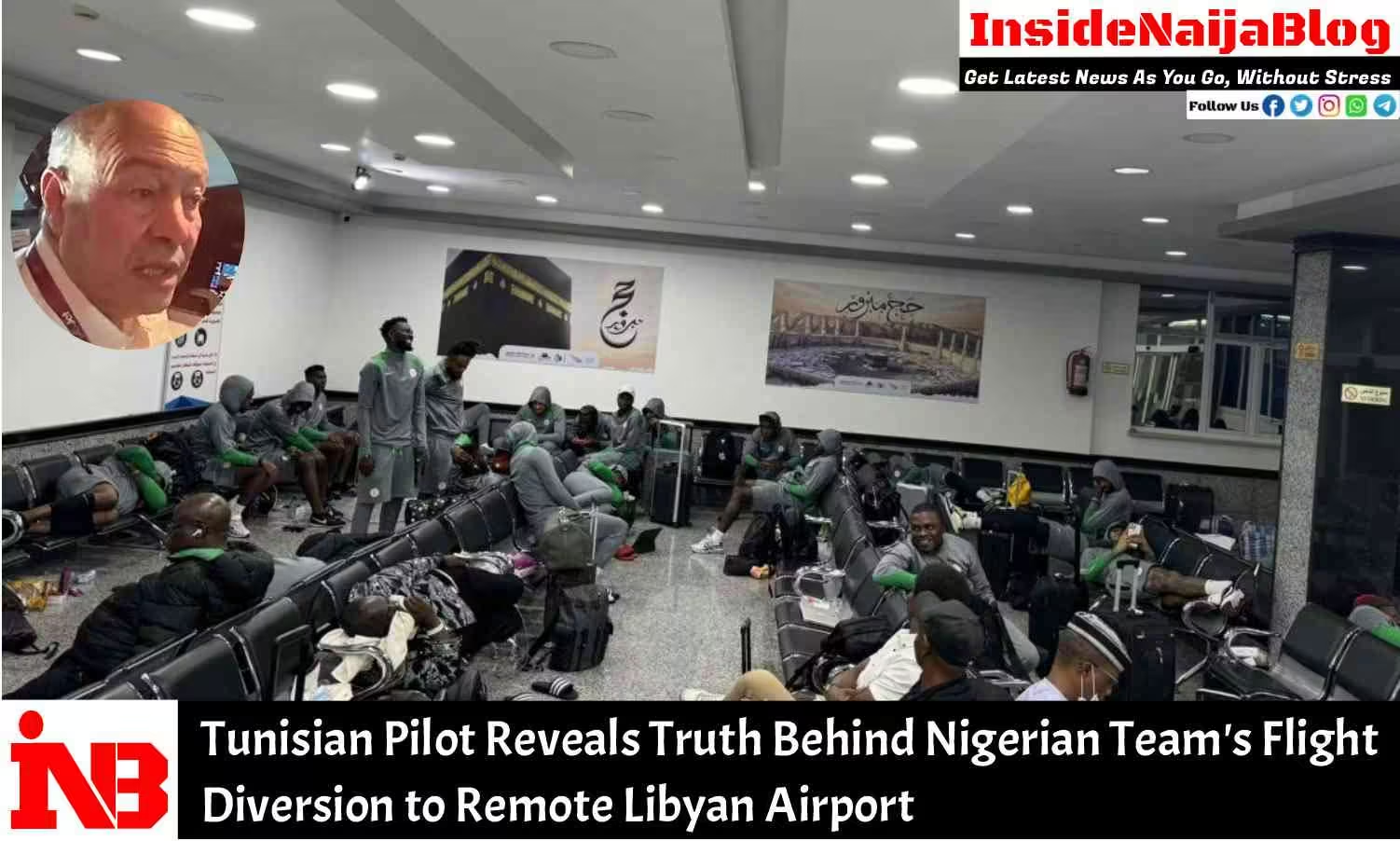The Tunisian pilot who flew the Nigerian national football team to Libya has opened up about the circumstances that led to the unexpected diversion of their flight, which stranded the team for over 16 hours. Instead of landing at Benghazi’s Benina International Airport, the intended destination, the flight was diverted mid-air to Al-Abraq, a small, remote airport typically used for hajj operations.
Unplanned Diversion Causes Controversy
The diversion became a topic of debate after the Nigerian team was left stranded ahead of their 2025 Africa Cup of Nations qualifier against Libya. In a video interview, the pilot, whose name has not been disclosed, explained that the decision to change the flight path came from Libyan authorities—not from him. Speaking to Sports Journalist Pooja Media, the pilot clarified that his initial flight plan was to land at Benghazi, as authorized by the Libyan Civil Aviation Authority.
“The flight plan was to land at Benghazi, and we had the approval to do so,” the pilot said. “However, when we began our descent, they instructed us to divert to Al-Abraq, which is almost 300 kilometers east. This wasn’t even listed as an alternate airport, something which is not good.”
Risks and Challenges of the Diversion
The pilot revealed that the sudden change raised serious safety concerns, particularly regarding fuel. He emphasized that fuel calculations had been made based on the original destination of Benghazi, and diverting to another airport could have compromised safety.
“In aviation, we have our flight plan, we calculate the fuel to our destination, so we have to avoid this kind of thing because it may make a breach to safety,” the pilot explained. He added that he questioned the directive multiple times but was told that the order came from the “highest authority” and that landing in Benghazi was no longer an option.
Documented Communications and Authorizations
Refuting rumors that the diversion was his decision, the pilot stressed that all communications and authorizations were recorded and could be used as evidence if needed. “Everything is registered in aviation, we cannot hide anything,” he said. “I asked several times, probably eight times, and warned them about fuel concerns. But they insisted, saying it was from the highest authority.”
The pilot stated that he had all the necessary approvals to land in Benghazi but that Libyan officials changed their decision at the last moment.
Difficult Landing at Al-Abraq Airport
Describing the conditions at Al-Abraq, the pilot painted a picture of a poorly equipped airport, lacking basic aviation infrastructure. “There is no ILS [Instrument Landing System], no air navigation approach, no VOR [VHF Omnidirectional Range],” he said. The team had to perform a visual landing, which is particularly risky at night with marginal weather conditions.
The pilot, who had experience flying in the region, acknowledged that his familiarity with the area helped him manage the challenging landing. “Thank God we made it safely,” he said, noting that the conditions gave them “no second chances.”
NFF Pulls Super Eagles from Qualifier Match
In response to the diversion and the ordeal that followed, the Nigeria Football Federation (NFF) announced that the Super Eagles would not be playing the qualifier match against Libya. The players, frustrated by the situation, have resolved not to participate in the game, and the NFF is now making arrangements to fly the team back home.
A statement from the NFF read, “Players have resolved not to play the match any longer, and NFF officials are making plans to fly the team back home.”
This development has cast a shadow over the crucial qualifier match, raising concerns about the safety and management of international sports travel in volatile regions.




